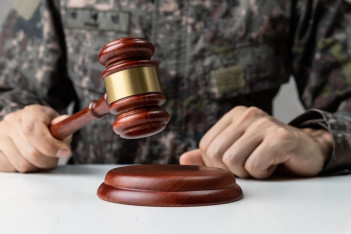Unauthorized departure from duty is a serious offense that can have significant consequences both for the individual who committed it and for other parties involved. This term is most commonly used in the context of military service but may also apply to civil law, such as in cases of non-fulfillment of contractual obligations.
What is Unauthorized Departure from Duty?
Unauthorized departure from duty, particularly in a military context, refers to a situation where a service member leaves their post without permission. This constitutes a breach of disciplinary norms and can be considered a crime under the Criminal Code of Ukraine (specifically Article 407). In a civilian context, it may involve cases where an employee abandons their workplace or a client fails to fulfill contractual obligations, thus violating the agreement.
Consequences of Unauthorized Departure from Duty
For military personnel:
- Criminal liability: Under Article 407 of the Criminal Code of Ukraine, unauthorized departure is punishable by fines, detention, or even imprisonment.
- Disciplinary measures: Besides criminal penalties, service members may face disciplinary actions, such as demotion or dismissal from service.
- Moral repercussions: Loss of trust from commanders and fellow service members.
For military personnel, it is important to remember that unauthorized absence from duty undermines not only their own reputation but also the combat readiness of their unit. Such actions can be regarded as a betrayal of the interests of service and the team. Rectifying the consequences often requires significant effort, and rebuilding trust takes a long time.
In civilian contexts:
- Contract termination: Failure to meet obligations may lead to the dissolution of the agreement.
- Financial damages: The affected party may demand compensation for losses incurred.
- Reputation risks: Abandoning a workplace or failing to fulfill obligations can negatively impact an individual's or a company’s reputation.
In a civilian context, unauthorized abandonment of obligations can significantly complicate future career prospects. The reputation of a reliable and responsible employee is built over years but can be lost with a single wrong decision.
How Can a Lawyer Assist in Cases of Unauthorized Departure?
A lawyer or attorney plays a crucial role in resolving such issues. Services of a military lawyer:
Consultation
- Military context: The lawyer analyzes the situation and explains the provisions of the Criminal Code and military service regulations.
- Civil context: They review contracts, working conditions, and obligations of the parties involved.
- In criminal cases — proves the absence of a crime, mitigating circumstances, or unlawful actions by investigative authorities, such as procedural violations during evidence collection.
Court Representation
- If the matter escalates to court, the lawyer devises a defense strategy:
- Military cases: Present mitigating circumstances, such as health issues or family emergencies, that influenced the decision to leave.
- Settling labor disputes — helps reach an agreement between an employee and an employer, such as on wage arrears or the terms of termination.
Mediation
- The lawyer can act as an intermediary to avoid court proceedings. For instance:
- Negotiate the return of a service member to duty without criminal prosecution.
- Settling labor disputes — helps reach an agreement between an employee and an employer, such as on wage arrears or the terms of termination.
Document Preparation. The lawyer assists in drafting applications, complaints, or other necessary documents to protect the client's interests.
A lawyer also conducts an independent investigation, gathering evidence and testimonies that may be used in the client’s favor. They interact with law enforcement agencies, military prosecutors, or other state institutions to ensure a fair review of the case. Additionally, the lawyer may consult experts (such as medical professionals or psychologists) to confirm circumstances that could have influenced the client’s actions. Legal support helps minimize risks and consequences and ensures the protection of the client’s legal rights and interests.
Question
Can criminal liability for unauthorized departure be avoided?
Answer
Yes, in some cases, it is possible. A lawyer can highlight mitigating factors (e.g., health conditions or family problems) or demonstrate that the client's actions do not constitute a crime. This may help avoid criminal charges or result in the lightest possible penalty.
Question
What are the main consequences of unauthorized departure?
Answer
For military personnel, the consequences include: сriminal liability (fines, detention, imprisonment), disciplinary measures (demotion, dismissal).
Protecting Your Interests. A lawyer provides professional legal support in any case, ensuring fair consideration of your situation. They help avoid unjust punishment and defend your rights in court, negotiations, or other proceedings.
Professional Document Preparation. Drafting all necessary documents—from applications and complaints to contractual agreements: Avoiding legal errors that may affect the case outcome. Meticulously crafting each section to safeguard your interests. Ensuring compliance with legal requirements.
Peaceful Conflict Resolution. Instead of lengthy court battles, achieving a compromise may be possible: Negotiations with the opposing party to reach a mutually beneficial agreement. Avoiding public proceedings that could harm your reputation. Saving resources and reducing stress through alternative dispute resolution methods.
Engaging a lawyer is an investment in protecting your rights and freedoms. Professional legal assistance provides not only legal support but also psychological comfort, knowing that an expert is safeguarding your interests.



































